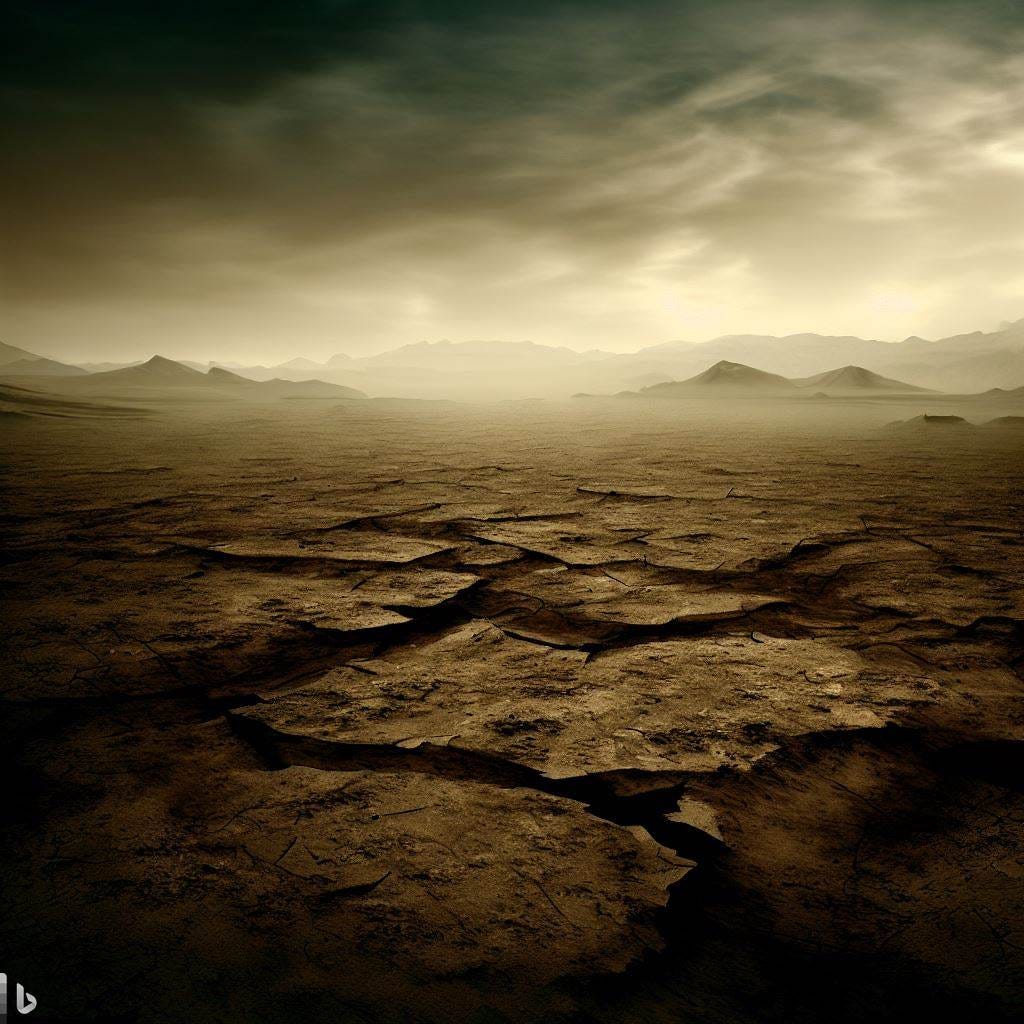S10, E1: The Technological Angels of Nature
Series 10: Carbon Captives - Primer Episode
This is a series that discusses climate nihilism and the fashionable trend for technophobia. To denounce human ingenuity is to put climate initiatives at risk because, for all practical purposes, there are no other agents of positive change.
Our Technological Bent
Of the very many things that distinguishes humans from all other life on Earth is the ability to develop technology in the extreme. In the infancy of our species, the most basic tools provided survival advantage and so it was technology that allowed us to leverage our effectiveness in the environment. Some believe that the need to pass on technology created the requirement for language and what are linguistics if not the study of an evolved technology?
Did innovation get out of hand? What else could have turned us into the most destructive species on the planet? Some people have speculated that the Earth would be better off left to nature without humans. We might nod sympathetically at the suggestion, after all, they have a point right?
I think not.
Why Humans Need To Stick Around
From nature came the world we recognise took over 4.6 billion years. For at least 200 million of them, carbon was slowly but systematically being put into long-term geological storage. It stabilised the climate making the Earth habitable for increasingly diverse and complex lifeforms.
Perhaps one day in prehistory our common ancestor awoke to blink at the sunlight and, in a way that no other creature had ever done before, marvelled at nature and the sense of being part of something bigger. Only now do we have a construct for how of big that is and how small is the place we occupy in space and time. Only now can we get a sense of the eons of brutal existence, the extinctions and relentless suffering that it took to get that moment, when we didn’t even know we were African.
The Technology of Morality
Humans are not an offence to nature but a product of it and there is no evidence for any kind of morality beyond what we have devised. To discount humans is to abandon the only way to preserve anything.
In S8,E1 The Emergence of Beauty, I argued that beauty is not 'out there' it only exists in our consciousness and that we project beauty onto nature. If so, when we die, it dies with us.
Homo Sapiens are a product of nature and not a scourge. The environment shaped us and we survived, not just in spite of nature and it's accidental cruelty, but because of it too. It gave us empathy.
If there were some way to know, we might find that every technologically advanced species in the universe inevitably reaches an impasse; where their abilities to annihilate or and save themselves are evenly matched. If we can entertain that notion it also makes it possible to recognise that we have a choice between taking up the stewardship of this planet and doing nothing.
The extremely unlikely set of circumstances that made life on Earth possible, is what Brian Cox refers to as the 'Goldilocks Principle' and this makes the stakes higher.
I would say if our civilisation doesn’t persist, for whatever reason, and it might be an external event or it might be our own action, nuclear war, whatever it is we decide to inflict on ourselves, it is possible that whoever presses that button eliminates meaning in a galaxy for ever.
Physicist Brian Cox, as quoted in "Earth’s demise could rid galaxy of meaning, warns Brian Cox ahead of Cop26", The Guardian, Tara Conlan, 19 October 2021
Can we leave it to nature? After all, nature didn’t need our help to create any of it in the first place, including us. Nature doesn't have the capacity to be benevolent or malicious and it can be best personified (if that is helpful to do) as being indifferent.
Without consciousness or conscience, there can be no direction or purpose and nature can’t achieve anything by chance on a timescale that would preserve anything. Even if life was to recover or reemerge, we would be as irrelevant to them, as the dinosaurs are to us mammals.
Beyond Meaning
To suggest that we are essential to meaning may mark us as a solipsistic and contemptible species. Yet whose opinion will that be if not ours? Our self-hatred will have no meaning on an Earth where we don't exist.
The danger is that we trigger a cascade of climate tipping points, because were that to happen, the outcome would be unpredictable. In all likelihood the opportunity to control it would be lost. That introduces a separate but connected risk that a spiral of extinctions follow.
The threat to humans is the most important and setting aside the self-interest and speciesism, the reason is that we have all the mitigations. To be able to save other species from extinction, replant rain forests, capture carbon or to have any slim chance of diverting a devastating asteroid, requires human technology. When we vanish all that vanishes too.
In this series I will be discussing the risks of misunderstanding our role and responsibility, explaining the importance of engineering solutions and transitional technologies. I will focus on some of the technophobic and nihilistic narratives which, I assert, are acting in opposition to the development and deployment of workable solutions.
In a catastrophic situation, self-rescue is the prerequisite to rescuing others.
Next in series: S10, E2: The Pathology of Climate Nihilism







